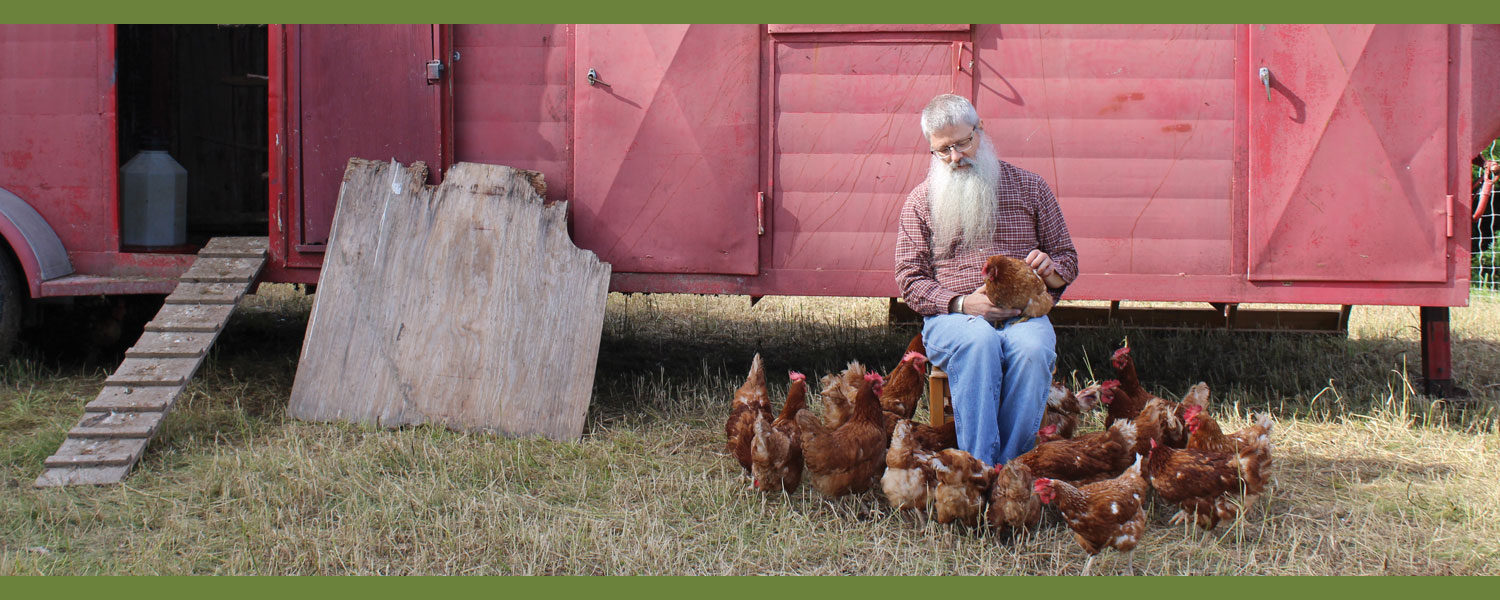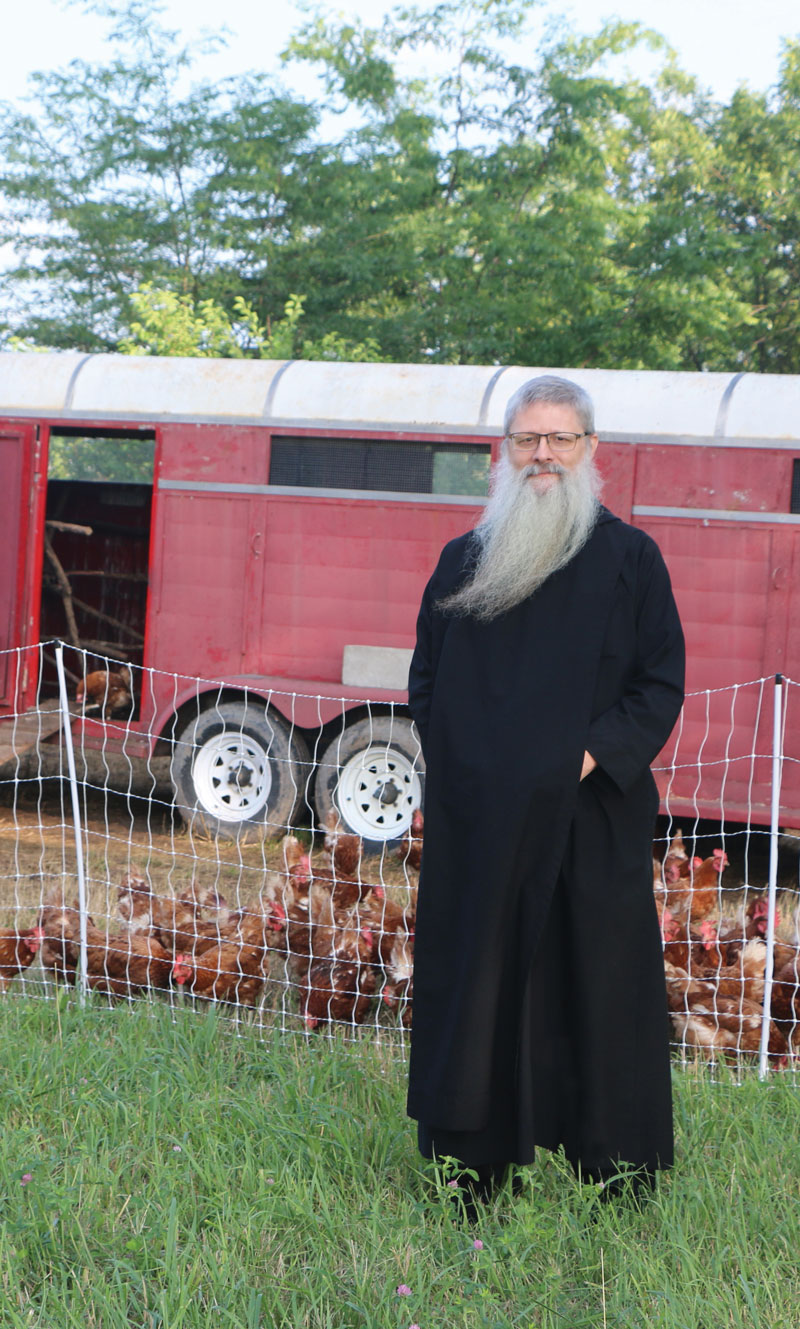
Farm Venture Proves Fruitful
By the Work of Their Hands
Br. Jacob Kubajak, OSB, wasn’t born on a farm, but his mother’s family farmed, and as a kid when they visited, he would help his uncles with various tasks around the farm, which first sparked his interest in agriculture. When he went off to college years later, he pursued a degree in animal science and he spent a year and a half during college on a farm, milking cows and working with hogs and beef cattle. He continued on to graduate school at the University of Wisconsin-Madison, earning a Master’s degree in Endocrinology and Reproductive Physiology.
 When Br. Jacob first came to Conception Abbey and looked upon the expansive pastures and rolling hills, it was only natural that he showed interest in the possibility of working on the farm as a monk. He reflected, “While the possibility was of interest to me, there wasn’t a very strong interest in farming among other candidates in the late 1980s and early 90s.” As a junior monk, he would help with lawn mowing and weedeating at times, but his studies made him qualified to teach Biology in the seminary college. His superiors also discovered his aptitude for numbers, and he was assigned to work in the Business Office.
When Br. Jacob first came to Conception Abbey and looked upon the expansive pastures and rolling hills, it was only natural that he showed interest in the possibility of working on the farm as a monk. He reflected, “While the possibility was of interest to me, there wasn’t a very strong interest in farming among other candidates in the late 1980s and early 90s.” As a junior monk, he would help with lawn mowing and weedeating at times, but his studies made him qualified to teach Biology in the seminary college. His superiors also discovered his aptitude for numbers, and he was assigned to work in the Business Office.
Years passed, but the desire to farm the Abbey land never left him completely. He discussed the idea of farming with Abbot Benedict, when then Fr. Benedict was also working in the Business Office. When the opportunity arose, Br. Jacob decided to start simple: with chickens. First, he did his research—reading books, watching instructive videos on YouTube, and participating in webinars. Then this year, he acquired a trailer that could be moved to different places on the property and he had the trailer renovated to serve as a suitable home for 85 chickens.
His primary goal for the farm was to improve soil fertility and soil health, learning more about what is called “regenerative agriculture.” Raising and caring for the chickens is more of a side project. Br. Jacob still works full-time as business manager which requires him to participate in the daily round of committee meetings, desk and computer work, and address human resource matters, but he appreciates the manual labor, bringing food and water to the chickens each morning and evening, which serves as a helpful outlet and a welcome escape from his email inbox. In addition, the work provides him with a tangible sense of accomplishment in a task that he finds “different and relaxing.” The tangible results normally amount to the chickens producing 70 eggs a day, which he collects each morning and delivers them to the Abbey kitchen for the monks and guests to enjoy at breakfast and throughout the day.
The chickens have become a bit of a conversation piece around campus. Br. Jacob has had many positive interactions explaining the process to seminarians and discovering guests or other employees who have experience raising chickens and are willing to compare notes. At least a couple of other monks have assisted him with the chickens, which has enabled him to get to know them in a context outside of choir and meals. His work has also fostered more relationships and built new connections with the farmers in the area whom he encounters when he purchases feed for the chickens. He is even in discussion with a local farmer about raising sheep or exploring other possibilities. Br. Jacob admits that he is old enough to realize that it might be a passing fad, but right now it is something he looks forward to and provides him an opportunity to get outside.
— Fr. Paul Sheller, OSB
Posted in General, Monastery News
